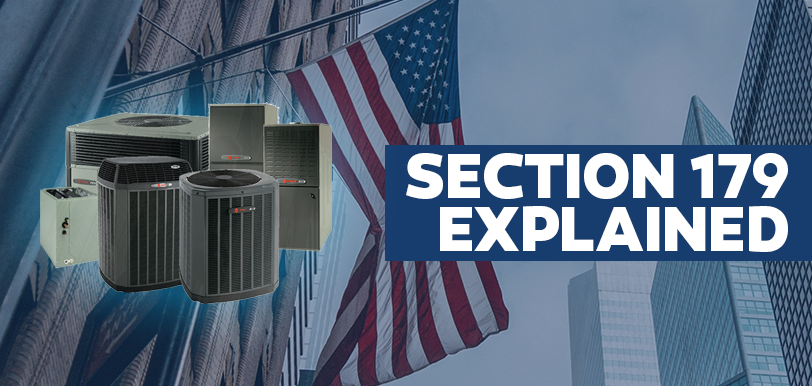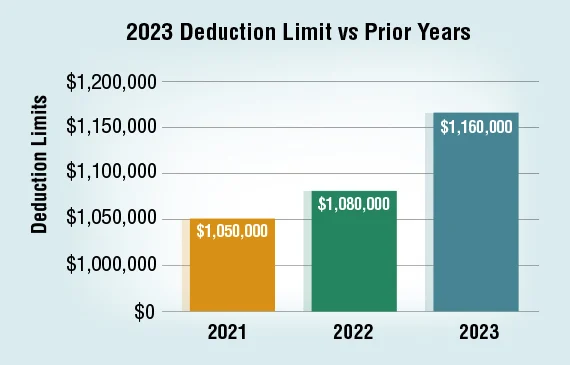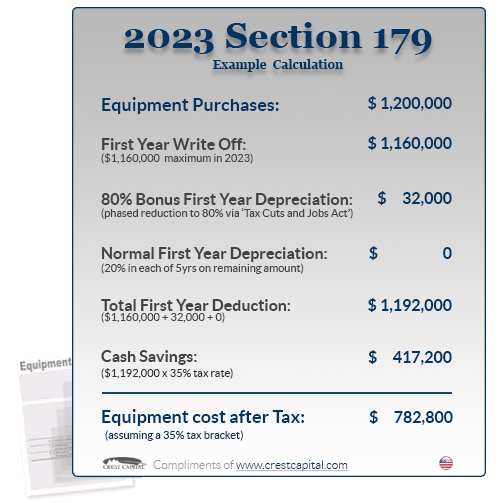Want to save with Paschal? Don’t miss our current offers and specials

Want to save with Paschal? Don’t miss our current offers and specials
Return to Paschal Resource & Education Hub


If you are a small business owner, multi-family investor, or real estate investor, then you are more than likely very familiar with Section 179 Tax Deductions. Sect. 179 is a tax deduction commonly used by business owners in order to reduce their federal tax liability through the purchase of equipment for their business. This article does not serve as tax advice, and should not be treated as such. You should first consult with your tax advisor or accountant to determine what is right for your business.
Essentially, Section 179 of the IRS tax code allows businesses to deduct the full purchase price of qualifying equipment purchased or financed during the tax year. That means that if you buy (or lease) a piece of qualifying equipment, you can deduct the FULL PURCHASE PRICE from your gross income. It’s an incentive created by the U.S. government to encourage businesses to buy equipment and re-invest in themselves. Section 179 was designed and developed for small-medium sized businesses by the U.S. Government in order to help relieve them of their overall tax liability.
In previous years, when a business made a purchase for qualifying equipment, they typically write off a fraction of that purchase each year through depreciation. If the company spent $50,000 on a piece of machinery, they would write off for example $10,000 per year for 5 years. Section 179 allows small businesses to avoid this incremental write off for multiple years, and instead allows them to write off the full purchase amount in the first year. So that $50,000 piece of equipment would be written off as $50,000 in the same year, rather than spread out over a period of time.
There are limits to the amount and type of equipment you can purchase for your company. The total purchase cap for 2023 is set at $1,160,000, which is an increase of $80,000 compared to 2022. The deduction begins to phase out on a dollar-for-dollar basis after $2,890,000 is spent by a given business (thus, the entire deduction goes away once $4,050,000 in purchases is reached)
Now, Section 179 “allows your business to write off the entire purchase price of qualifying equipment for the current tax year”
In 2022, businesses can deduct the full price of qualified HVAC equipment purchases, up to $1,160,000. There’s a total equipment purchase limit of $2,700,000.

All businesses that purchase, finance, and/or lease new or used business equipment during tax year 2023 should qualify for the Section 179 Deduction (assuming they spend less than $4,050,000). Most tangible goods used by businesses, including HVAC systems, water heaters, and generators qualify for the Section 179 Deduction. For basic guidelines on what property is covered under the Section 179 tax code, please refer to this list of qualifying equipment. Also, to qualify for the Section 179 Deduction, the equipment and/or software purchased or financed must be placed into service between January 1, 2023 and December 31, 2023. For 2023, $1,160,000 of assets can be expensed; that amount phases out dollar for dollar when $2,890,000 of qualified assets are placed in service.
Short Answer: Yes- HVAC systems, heat pumps, geothermal systems, air conditioners, & furnaces qualify for the full Section 179 Deduction in 2022.
If you are a property owner, multi-family investor, or small business owner, then one of the best investments you can make for your building(s) is to replace your out-dated or inefficient HVAC system.
HVAC systems weren’t always covered by this deduction, but recent policies have gone into effect which allow them to be written off. That means that it is more important than ever to upgrade your HVAC system(s) immediately before the policy is revisited.
In 2017, Congress has passed new tax reform policies, which have been known as the Tax Cuts and Jobs Act (TCJA), and went into effect on January 1, 2018. The act changed the process for depreciating and expensing, including an update that makes HVAC equipment purchases qualified in the Section 179 deduction. Before Jan. 1, 2018, HVAC equipment was considered a capital improvement, instead of a business expense.

If you are a small business owner, multi-family investor, or real estate investor in Arkansas, Texas or Missouri – then you should be taking advantage of this deduction immediately. New systems must be installed & placed into service before December 31, 2023. This means that you should start the process of getting a replacement quote today. Contact Us or call our office at 479-751-0195 to speak with a comfort specialist & begin the process of receiving a system replacement quote. As a reminder, this article does not serve as tax advice, and should not be treated as such. You should first consult with your tax advisor or accountant to determine what is right for your business.
Sources: Section179.org, irs.gov